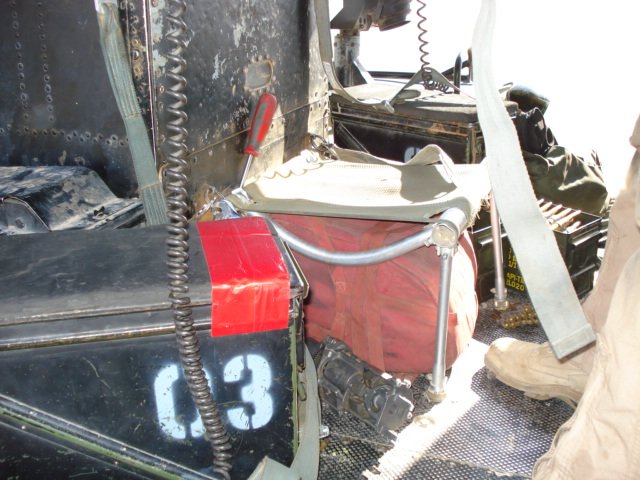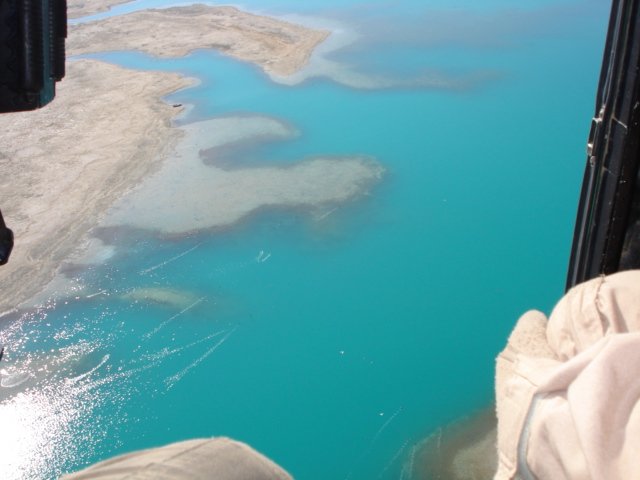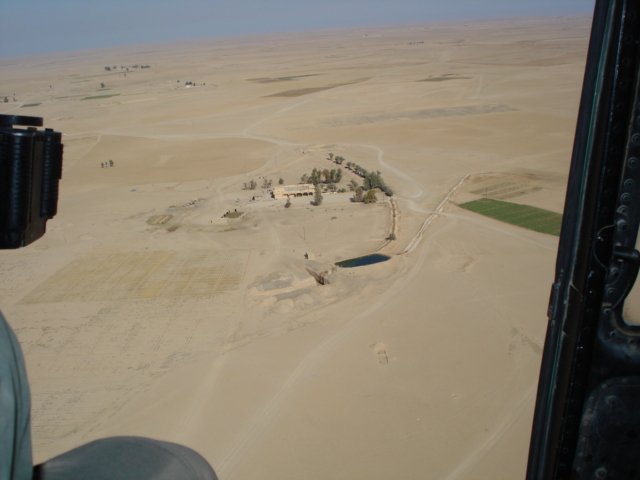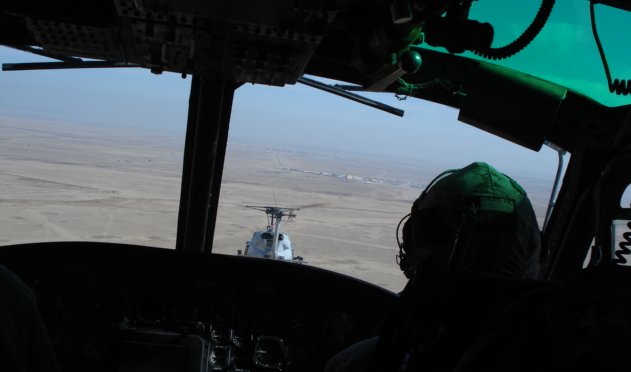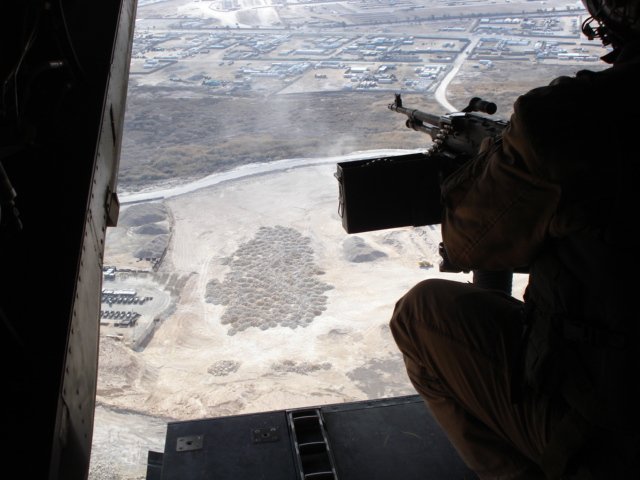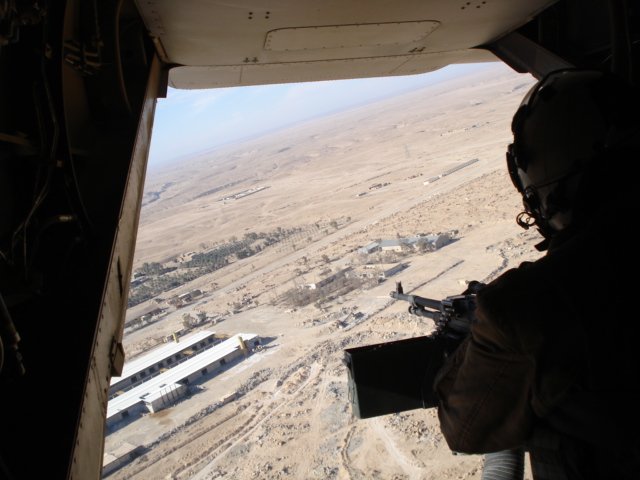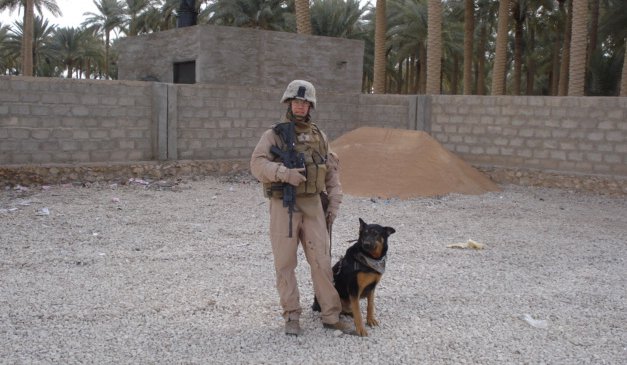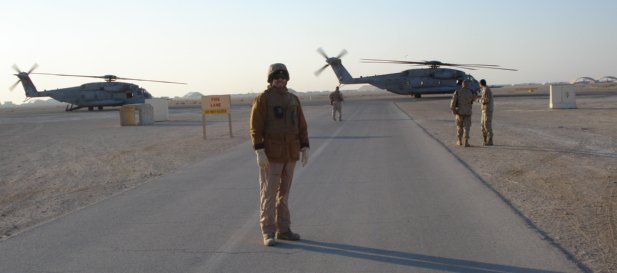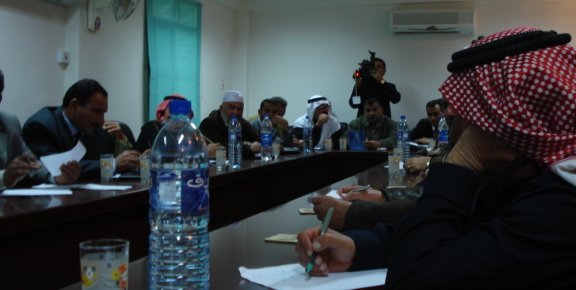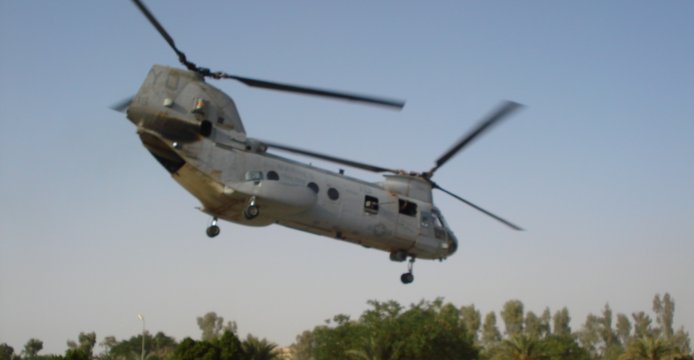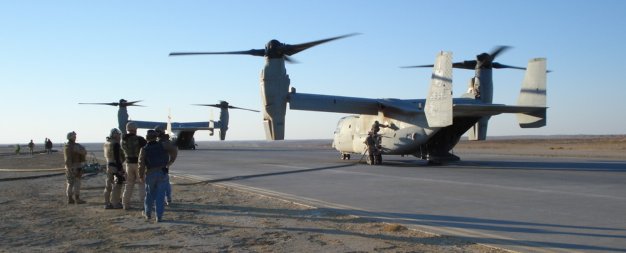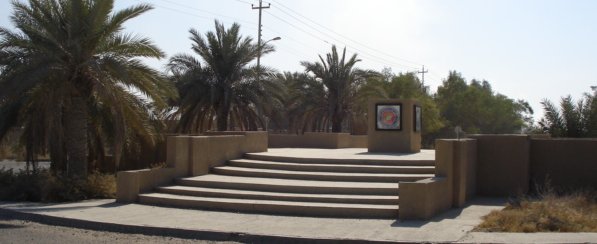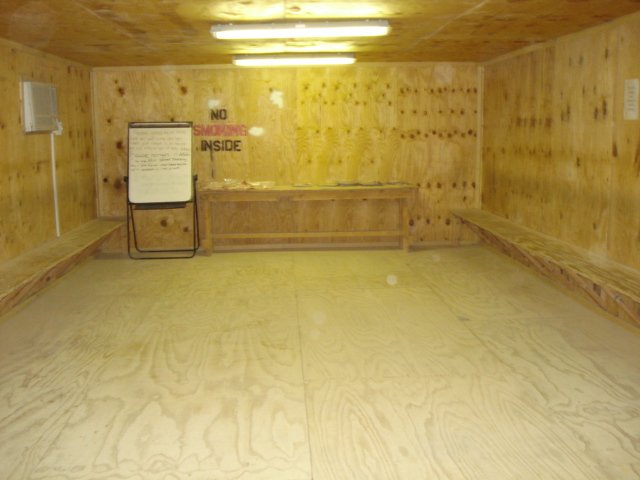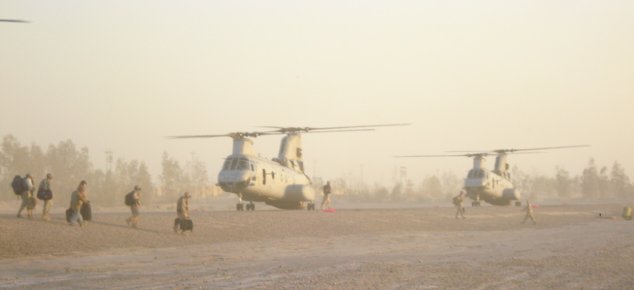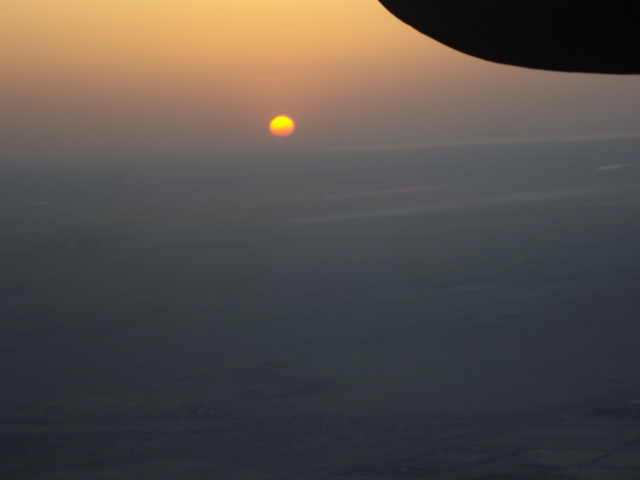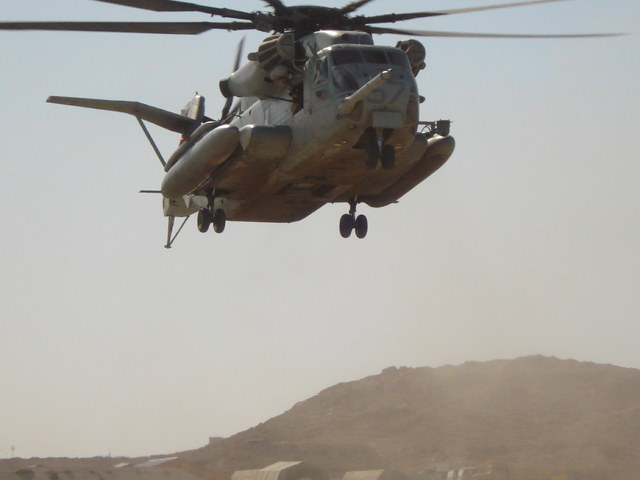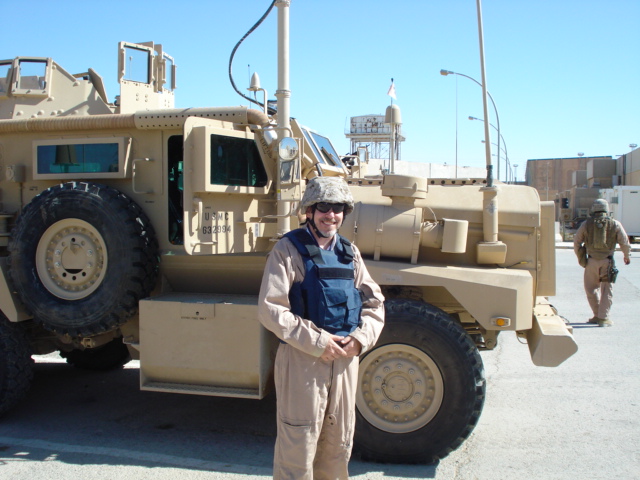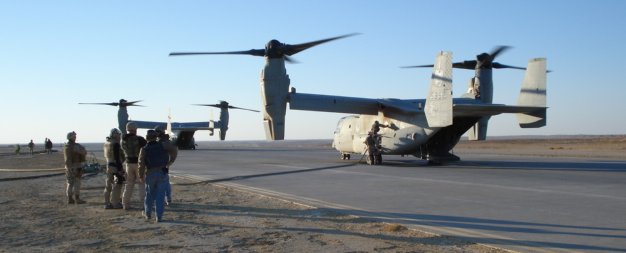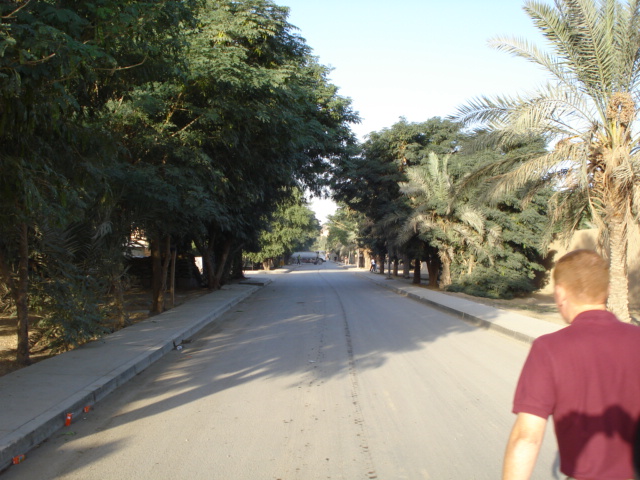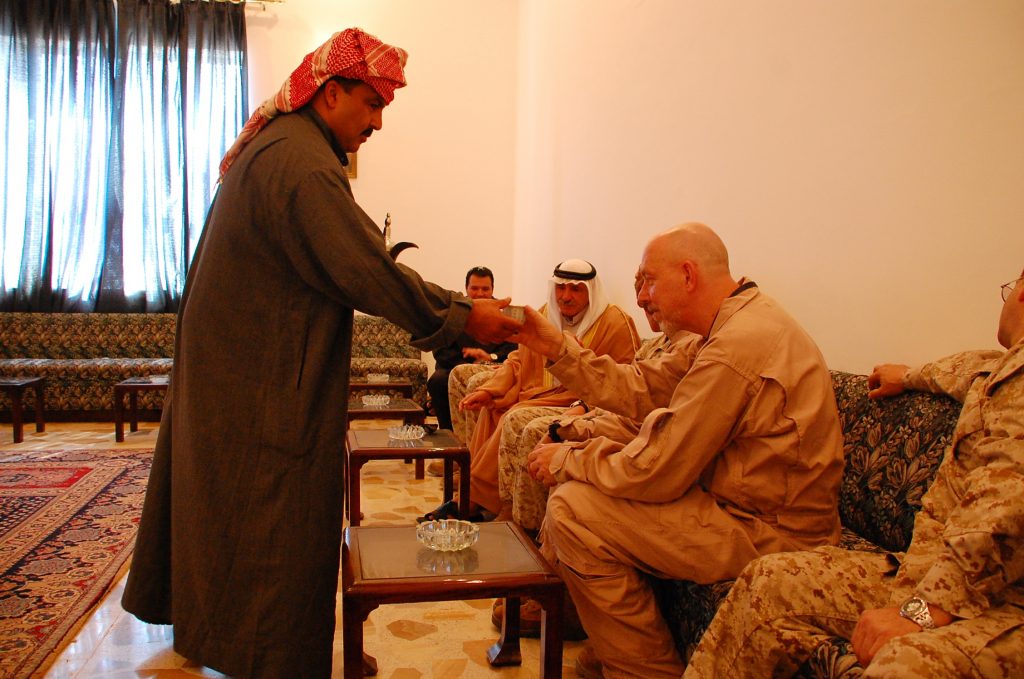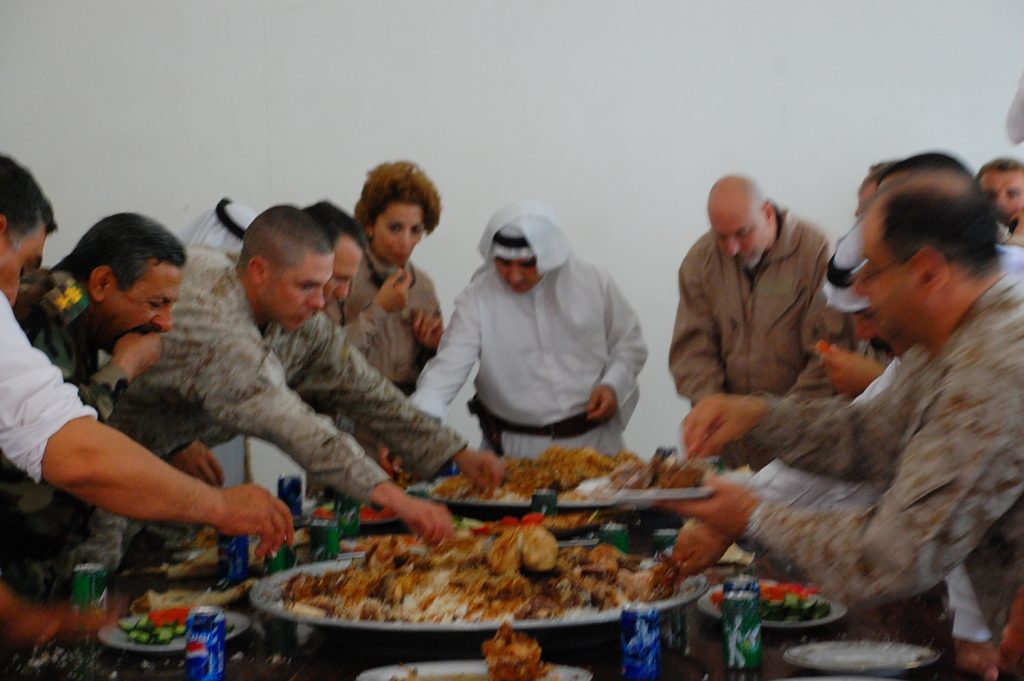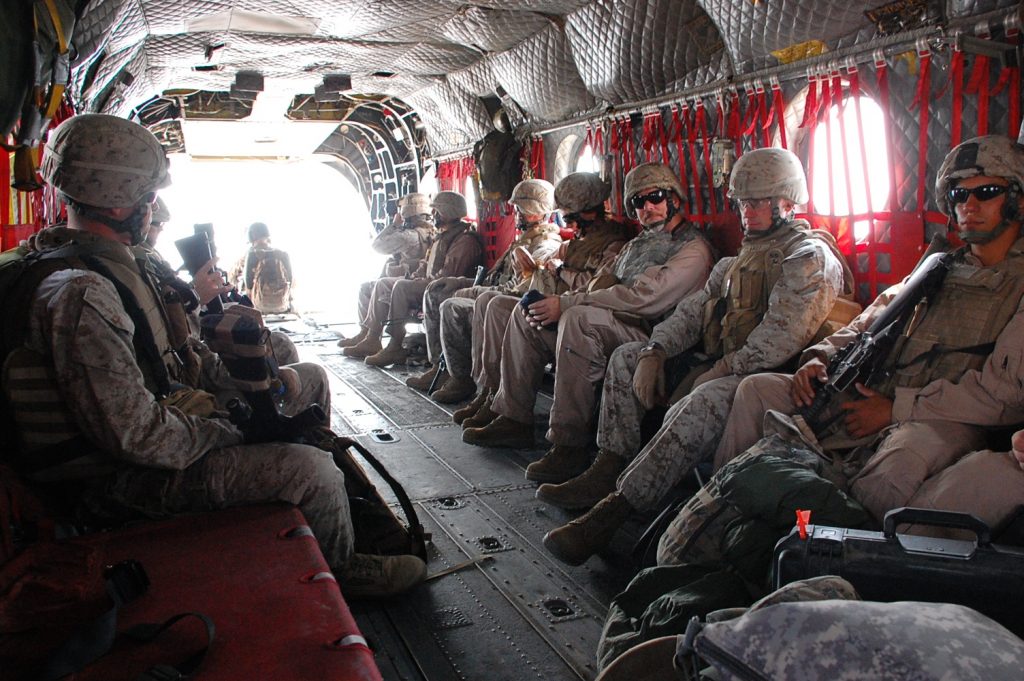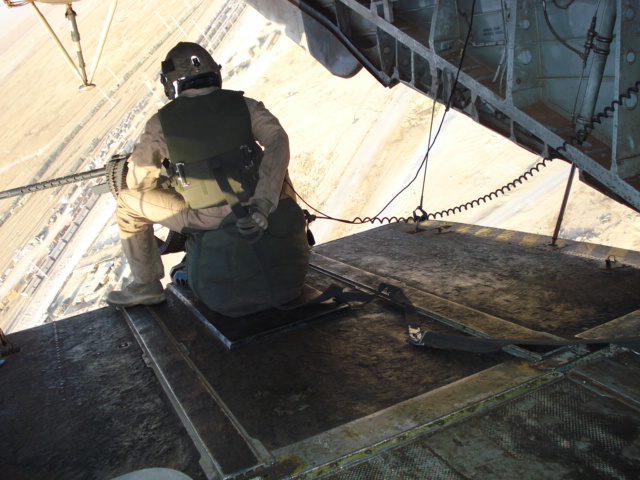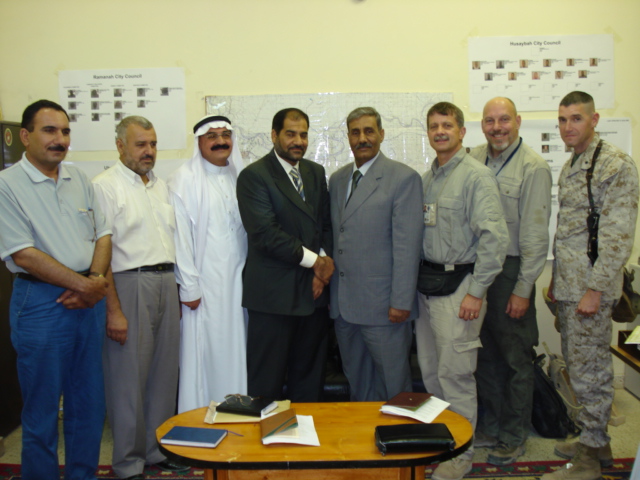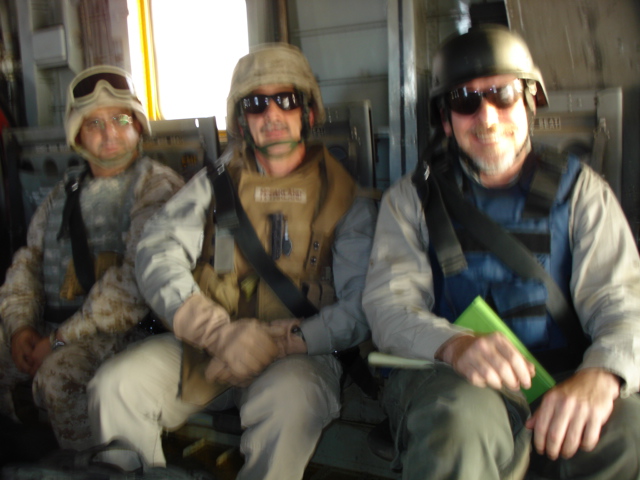That is what it says on the wall near my can. It is good advice, because it is amazing how quickly things become routine or “normal.” It struck me today when I was traveling to a reconciliation event (more on that later). I have included pictures of my rides. The helicopter is what got me to the base, then we convoyed in. I rode in that big truck I am standing next to in the picture. It is called an Mrap. It gives one the bumpiest rides possible, but supposedly it can withstand most any roadside bomb attack. The bottom is shaped like the bottom of a boat, so that the force of the explosion is directed outward.
Anyway, at first I was very aware of being around and in these odd machines, but now I do not pay much attention. I know that there is potential danger, but so far I have neither directly seen nor heard any indications of enemy activity, hence the danger of complacency.
Al Qaeda threatened to make Ramadan this year very difficult and bloody. They were unable to carry out this threat, probably because the Marines are rolling them up so effectively and the local population has turned against them. Now we hear about a post-Ramadan offensive. Nobody really believes this will happen, hence the danger of complacency.
Complacency is an interesting concept. Is it complacent accurately to assess that the threat level is decreased? Is it complacent to make assessments about the RELATIVE risk of various courses of action? Not everything can be a top priority. The Marines talk about the tyranny of the single incident. In this politically charged, CNN image saturated world, one incident can make the policy. Our convoys, body armor and redundant procedures are designed to avoid that single incident. That very bumpy and expensive Mrap I rode in is another result.
Body armor is very heavy because it includes lots of add-ons, each in anticipation of a particular incident. (BTW – in the picture I do not have on my usual stuff) We have the front and the back plates, makes sense. Then we have two side plates and a special groin protection. There is a throat protector and some people have kind of wings that protect the upper arms. I even carry a special little hooked knife to cut myself out of tangled straps. You keep on accreting new responses to specific threats. Any one of these things might save your life. I am reminded about what Mark Twain said about stoves, cats and lessons learned.
And there is a cost. All this stuff is heavy, bulky and threatening looking to Iraqi civilians. Beyond that, although Marines are generally excellent marksmen, the armor makes it more difficult for them to hit what they are shooting at since it restricts their movements and vision. And when we meet a group of friendly Iraqis in their civilian clothes, us wearing our dreadnought armor, what does that say about us and them?
I think it depends on your assessment of risk. Every one of life’s activities is risky. Each year nearly 50,000 Americans are killed in automobile accidents. These are always gruesome and often hit the young and healthy the hardest. Yet we all continue to drive and we have become very complacent about it. Forestry in Alaska has an annual death rate of 175 per 10000 workers. You have a greater chance of death or injury working in the forests of Alaska than serving in Iraq, but when the tree falls on somebody in the woods; it does not make a sound loud enough to for the national media to hear. I am not saying we should give up the armor or the convoys or the vigilance. But we should also not be held prisoner to the single occurrence.
I believe the greatest threat to my life is not AQI bombs or insurgent bullets, but simple accidents. Flying around in helicopters is just a risky business. I do not think that the armor makes me safer. On the contrary, it seems to me that if we hit the ground hard, wearing 50lbs of metal would exacerbate the shock and impede a quick escape. God forbid we land in the river. I used to be a good swimmer, but I do not think I could handle the drag. Maybe I am getting complacent, but that is what I think.

